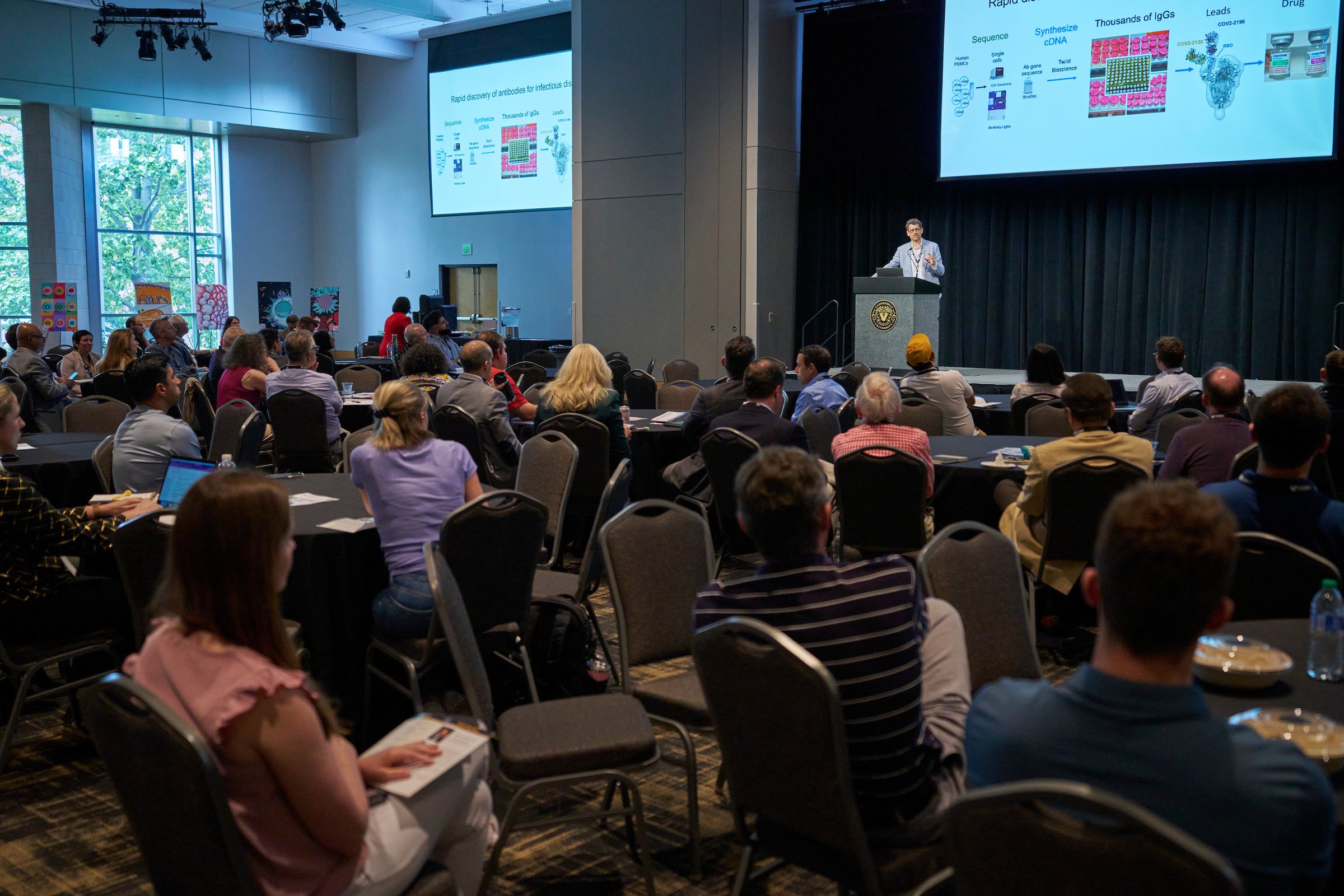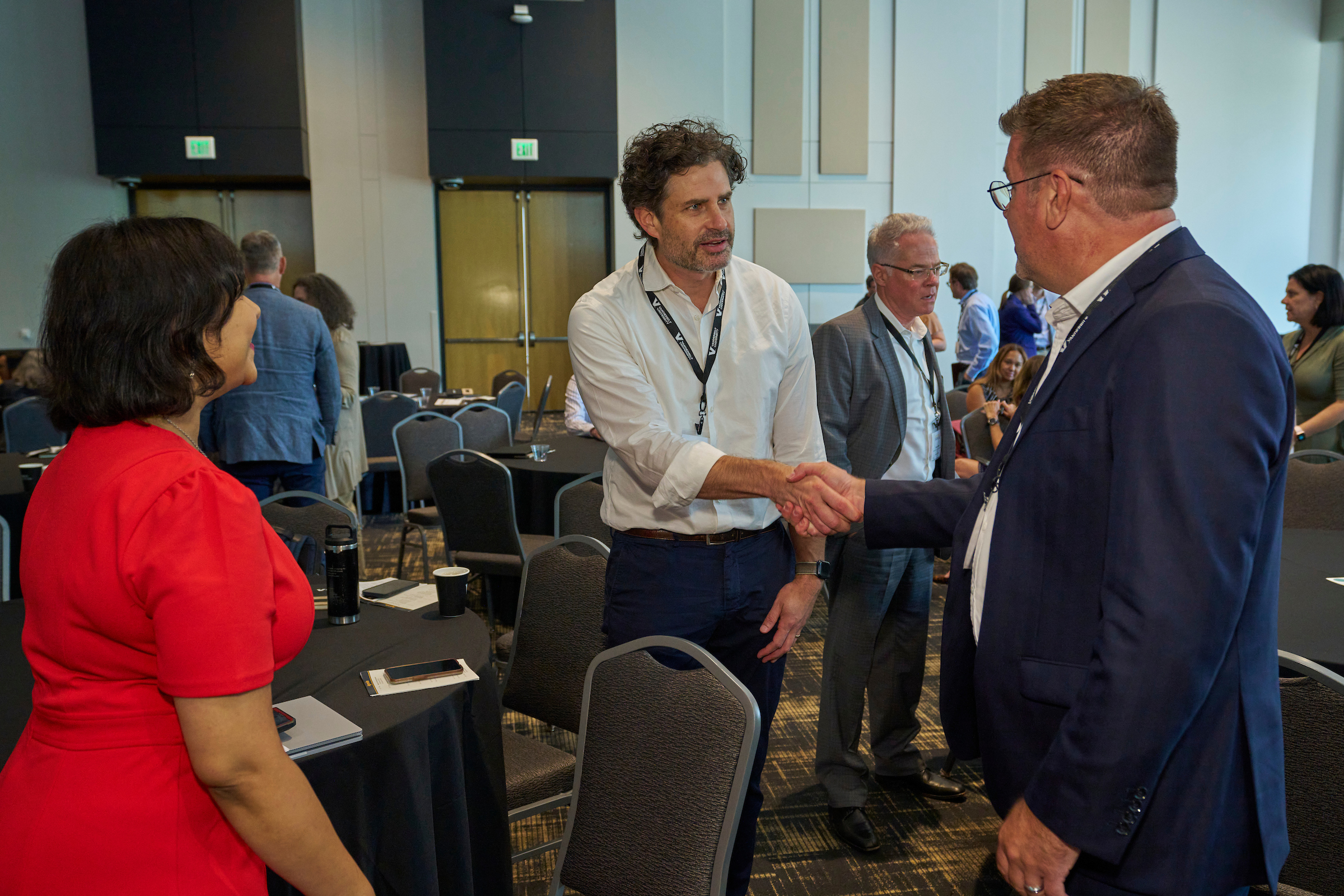
Infectious diseases pose a significant global health challenge, accounting for a substantial proportion of deaths worldwide, according to recent data from the World Health Organization. These diseases are caused by fungi, microbes, bacteria and viruses and include lower respiratory infections, diarrheal contagions, tuberculosis, HIV/AIDS and malaria. Vanderbilt’s Life Science Showcase: Advancing Innovation in Infectious Diseases held on July 18 emphasized the vital importance of advancing research and innovation to combat these persistent threats.
This was the second year for the event, which was organized by the Industry Collaborations team, in partnership with the Center for Technology Transfer and Commercialization within the Office of the Vice Provost for Research and Innovation, and the Vanderbilt Institute for Infection, Immunology and Inflammation (VI4).
The showcase brought together leading experts and researchers from Vanderbilt University and Vanderbilt University Medical Center, along with government representatives, venture investors, entrepreneurs, trade associations and pharmaceutical industry leaders, to share insights and forge partnerships aimed at addressing infectious diseases.
“The idea behind the Life Science Showcase is to demystify the work that we do here,” said Chris Rowe, executive director of industry collaborations. “We do that by showcasing our exceptional researchers and the great work that they’re doing across Vanderbilt and VUMC.”
Vanderbilt is recognized as a global leader in infectious disease research, leveraging its extensive expertise in microbiology, immunology and innovative therapeutic development.
“Historically, Vanderbilt has been extremely strong in microbiology and immunology-related research,” said Eric Skaar, director of VI4, Ernest W. Goodpasture Chair in Pathology and professor of biological sciences, during his introduction. “We created VI4 in 2017 to recognize the strength that exists at Vanderbilt. We put all microbiology and immunology researchers under a single roof to foster collaborations and build community.”
Vanderbilt’s push to collaborate extends well beyond the campus, reaching across the region and around the world to combat global health threats and advance public health initiatives. With approximately 25 percent of deaths worldwide caused by infectious diseases, there is a pressing need for continued innovation and collaborative efforts in this field.
“As a world, we are still recovering from the pandemic,” said Swapneeta Date, assistant director for life sciences collaborations. “Unfortunately, the threats of infectious diseases are not over, with a looming doom of antimicrobial resistance, a nonzero possibility of biological warfare, and climate change affecting how diseases interact and are transmitted.”
The showcase featured a series of presentations and discussions by Vanderbilt and VUMC investigators focusing on the latest advancements in infectious disease research, innovative vaccine development and strategies to combat antimicrobial resistance.
Vanderbilt-affiliated presenters included:
- Robert Carnahan, associate director of the Vanderbilt Vaccine Center and professor of pediatrics, who highlighted his expertise in the discovery of novel antibody therapeutics and the development of rapid pandemic response platforms.
- Maria Hadjifrangiskou, associate professor of pathology, microbiology and immunology, who discussed her research on regulatory mechanisms underlying bacterial behavior and virulence in urinary tract infections.
- Houra Merrikh, professor of biochemistry, who presented her work on the impact of replication-transcription conflicts on bacterial evolution and antibiotic resistance.
- Manny Ascano, associate professor of biochemistry, who shared insights into the roles and coordination of RNA-binding proteins in regulating gene expression during cellular stress.
- Brian Bachmann, Stevenson Chair and professor of chemistry, who outlined his research on natural product biosynthetic enzymes and their applications in drug discovery and pharmaceutical production.
Industry leaders from AstraZeneca and Pfizer shared insights into their work and the urgent need for continued innovation in the field. Representatives from the Biological Technologies Office in the Defense Advanced Research Projects Agency and the Centers for Disease Control and Prevention provided information about funding and policy support in combating infectious diseases.

“The success of this year’s showcase reaffirms Vanderbilt’s commitment to leading in life sciences research and innovation,” Rowe said. “As infectious diseases continue to pose significant global challenges, events like this are crucial in bringing together diverse expertise and resources to develop effective solutions.”
Kelly Dooley, director of the Division of Infectious Disease and professor of medicine, closed the event by highlighting the overarching importance of this work. “Medical breakthroughs are coming at us at an astounding rate, from transplants to cancer, from therapeutics to novel ways surgeons help our patients. But all of that is at risk if we’re unable to prevent and treat infectious disease.”
With a strong focus on research excellence and collaboration, Vanderbilt and VUMC lead the way in combating infectious diseases. The Life Science Showcase exemplifies this dedication, providing a platform for sharing groundbreaking discoveries and fostering partnerships that will shape the future of global health.

